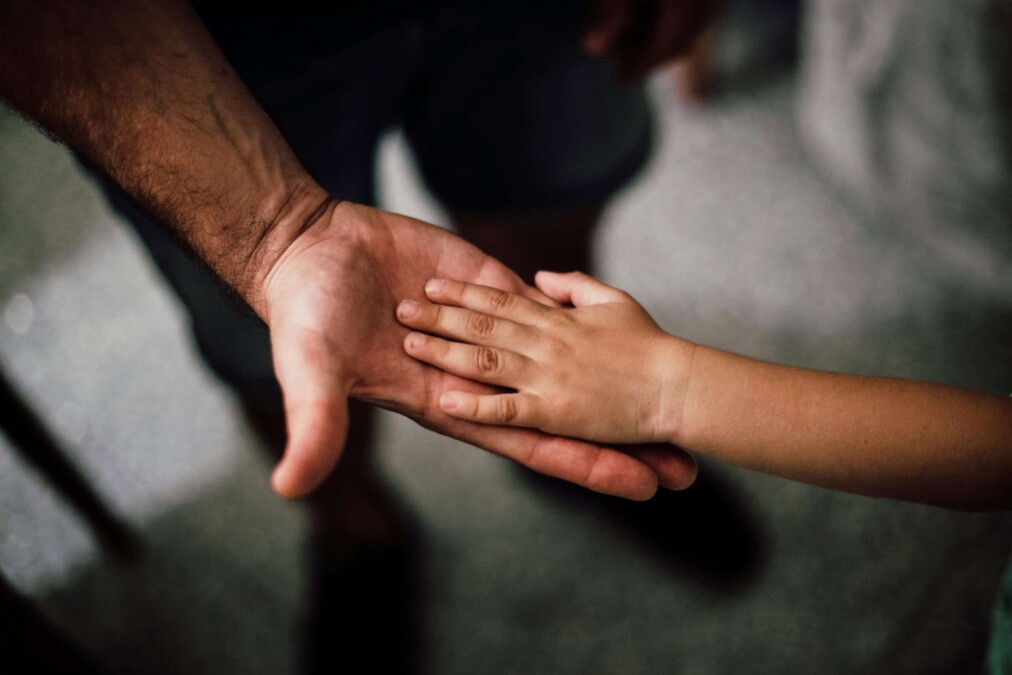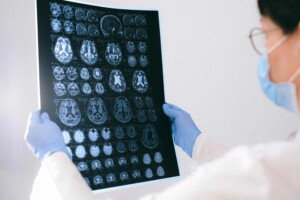Today, we have unprecedented knowledge of the impact of stress and trauma on mental health and physical well-being. Most often, we associate trauma with a devastating event happening to individuals or communities, affecting victims’ mental health with conditions such as PTSD. If we have experienced such an event ourselves, we understand how single-event trauma can impact our mental health and well-being. However, the impact of stress and trauma happening within the formative years of childhood has far more devastating long-term effects on mental health, these impacts are far more understood than any other time in history, but far less acknowledged is how these directly impact our mental health and relationships. The following will provide a broad overview of how childhood experiences shape our mental health, emotional well-being, and future relationships.
Childhood Trauma in ACE Studies
Well-regarded ACE studies from the late 90s documented how a higher incidence of ‘adverse childhood experiences’ correlates with significantly higher risk for substance abuse, mental health issues, intimate partner violence, and a host of life-threatening health issues. These studies show that ‘trauma’ is more far-reaching than a single life-threatening experience and show that we are all affected by trauma within our formative years to some degree, it’s the degree that makes the difference.
An expert in childhood trauma, John Briere provided a broader definition of trauma: “an event is traumatic if it is extremely upsetting, at least temporarily overwhelms the individual’s internal resources, and produces lasting psychological symptoms” (2013, p. 8). In its breadth, this definition can encompass many individual childhood experiences of being disconnected from adults, feeling alone and overwhelmed, and left to deal with ongoing childhood challenges. It is compelling to consider today’s avalanche of mental health issues and wonder what collective childhood experiences of extreme upset and overwhelm have contributed to this? It can also personally lead us to consider our present struggles, whether it’s anxiety, depression, addictions, and/or relationship issues, and wonder what happened in my own life experiences that have potentially impacted my mental health?
Childhood Trauma and Our Attachment History
Attachment studies are conclusive in recognizing the importance of bonding and nurturing between infants and caregivers . Where there is responsive, attentive, attuned loving care from caregivers, the infant experiences pleasure and human contact woven together. This creates neurobiological “glue” or bonding, meeting our powerful human need for attention, approval, and affection from our caregivers which provides the groundwork for a lifetime of healthy relationships. Because our need for love and approval continues throughout our lifespan, the most powerful pain we can experience is the loss of that attention, approval, and affection, the most obvious example being the death of a loved one. Therefore, simply because we are born dependent, needing nurturing, attention, approval and affection from adult caregivers, and lack of this kind of attention, is painful and even life-threatening to human infants, we are all profoundly influenced by how caregivers met our needs throughout our developmental years. These experiences shape our developing brain as we create internal mental models of ourselves, other people and the world in which we live, while it also shapes our internal emotional landscape which influences our capacity for emotional awareness, empathy and relationship skills.
“Attachment is the memory “template” for human-to-human bonds as this provides our primary ‘mental model’ of human relationships” (Siegel, 2003). Thus, our own ‘mental model’ for human relationships is defined by the type of caregiving we received; whether it was kind, attuned parenting; whether ‘traumatic’ or life experiences out of the caregiver’s control disrupted their ability to provide attuned care or whether there was inconsistent, frequently disrupted, abusive, or neglectful “care”. The latter, overwhelming an infant’s internal resources, resulting in defensive or mal-adaptive responses which continue to disrupt emotional regulation, mental health and relationships throughout the lifespan.
Childhood Trauma and Our Life Story
Simple life events can also have profound effects on our mental health, well-being, and relationships. We know that trauma is not limited to life-threatening experiences. It also includes maternal stress which directly affects the fetus and infants, who experience stress well before the brain develops the capacity for consciousness, all of which can disrupt growth and development. (https://www.ncbi.nlm.nih.gov/pmc/articles/PMC5052760/ https://jneurodevdisorders.biomedcentral.com/articles/10.1186/s11689-020-09337-y)
Research shows the loss of maternal presence, engagement and vitality are stressful, and even life threatening to infants. https://www.parentmap.com/article/new-book-motherhood-first-three-years. For a young child, trauma can be experienced in separation from parents, from looking into the eyes of a depressed mother, or being in a household with high levels of marital tension. Chronic stress and trauma accompany incessant bullying whether person-to-person or through social media, stress occurs with disrupted learning in schooling for the neurodiverse, likewise, for children taking on adult roles caring for alcoholic or mentally unwell parents or other challenges at home. For all ages, unsafe relationships, chronic loneliness, constant shame or feeling a failure have the same impact (Cozolino, 2005). The list goes on… and must include the effects of societal discrimination that does not treat all people equally regardless of gender, race, or religion. These events shape us, particularly throughout childhood, as they impact our emotions and as we weave meaning or beliefs about ourselves and others into our lives, this creates the story we tell ourselves and believe to be true!
The Journey out of Childhood Trauma: Moving from “ME to WE”
Each person is unique with individual ‘tolerance’ to any potentially traumatic experience. However, no person on the planet has a ‘perfect’ attachment history or has not had painful experiences or a degree of ‘trauma’ throughout their formative childhood years that has not left indelible impressions on their heart, mind, and soul shaping who they are, and how they react to others and life’s challenges. Neuroscience continues to provide extensive knowledge and understanding of how our mind and bodies are shaped by experience, particularly traumatic experience. Cozolino (2010) beautifully summarized this: “Our brain embodies the environment that shapes it … our neural architecture is the tangible expression of our learning history”.
To understand ourselves, it is vital to understand how adverse experiences have shaped our own life and crucially impacted how we approach others. Where we experience empathy in times of distress, we develop the capacity to react with empathy to another’s distress, moving us to connection and helpful actions. A lack of empathy or where we were shamed, blamed, or belittled in our distress, we learn to hide ourselves, to minimize, ignore, or deny our own pain, we learn to live in denial, or we project our pain onto others, seeking someone else to blame or shame. This is also the breeding ground of narcissism, where lack of emotional attunement and toxic relationship patterns result in self needs that are painfully over-inflated, inexhaustibly unquenchable and others’ needs expendable. https://www.goodtherapy.org/blog/are-attachment-issues-at-the-root-of-narcissistic-personality-01032020
Alternatively, we can become overly sensitive to and empathize deeply with others in distress. In this space, our unconscious mind recognizes a familiar experience of emotional distress, however we are hyper-fixated on the needs of others and are mobilized to rescue, heal, or fix others; as we do this, we disregard boundaries and our needs for self-care, all the while we are unaware it’s our own pain driving this need. Disregarding our own needs for self-care often keeps company with relentless self-criticism, perfectionism, and a powerful need to please others. Many in the helping professions are driven by this dynamic, with resulting ‘burn-out’ a legacy of unprocessed trauma. Whatever traumatic experience from the past that remains emotionally unprocessed, impacting our soul with unhelpful and unspoken internal beliefs, leaves a festering wound that drives unconscious needs or addictions that impact our present relationships and quality of life!
Our Collective Well-Being: An Individual Responsibility
How we are wounded individually also adds to the collective trauma within our community … because how we individually react to and treat others matters, it defines us as community! We are the sum of the individual parts; if one part is affected, all are affected. To make change happen, we MUST start with ourselves. Firstly, by seeking to understand how our past experiences are embedded in our brain and body in disowned and painful emotions abandoned in the past, however, they remain present whenever we judge, blame or project our pain onto others or engage in relentless self-judgement and criticism. Alternatively, they remain present when we attempt to rescue or ‘fix’ other’s problems, often creating ‘enabling’ relationships that drain our compassion and foster dependence. Only when we have dealt with our own pain with understanding and self-compassion, we can make ‘space’ for a more compassionate understanding and acceptance of others where we respect the boundaries and differences between us, which in turn creates the kind of environment in which all thrive.
My Counselling Space
My personal experiences and training as counsellor have led me to understand how deeply trauma impacts, leaving deep emotional scars on individual lives and on our collective well-being. My own experience of ‘burn-out’ from working in the helping professions and needing to understand and find healing for my wounded soul has enabled my desire to journey with people to understand their own trauma history and relationship pain. My approach with each of my clients, is to create a safe and healing relationship space that allows each person to uncover hidden wounds embedded in the body and mind, to speak their truth and discover inner strengths that have enabled their survival despite adversity. Within this supportive framework, together we can reframe the impact of trauma, reimagine the story of your life and relationships, and allow yourself to move from surviving to thriving!
Conclusion
Childhood trauma is not just a personal burden; it is a collective issue that shapes the fabric of our communities and relationships. The science is clear: our early experiences, particularly those involving stress, neglect, or abuse, leave lasting imprints on our brains, emotions, and behaviors. These imprints influence how we see ourselves, relate to others, and navigate life’s challenges. However, understanding the impact of childhood trauma is not about assigning blame or dwelling on the past—it is about empowering ourselves to heal and grow. By acknowledging the wounds we carry, seeking understanding, and practicing self-compassion, we can begin to rewrite the narratives that have held us back. Healing is a journey from “me” to “we,” where individual transformation contributes to collective well-being. As we confront our own pain with empathy and courage, we create space for healthier relationships, stronger communities, and a more compassionate world. Whether through therapy, self-reflection, or supportive relationships, the path out of childhood trauma is one of hope, resilience, and the possibility of thriving.
References
“Principles of Trauma Therapy” John Briere & Catherine Scott, 2013.
“Parenting from the Inside out” Dan Siegel, 2003.
“The Impact of Trauma on the Brain” Louis J. Cozolino, 2005.
“The Neuroscience of Psychotherapy. Healing the Social Brain”. Louis Cozolino, 2010.







